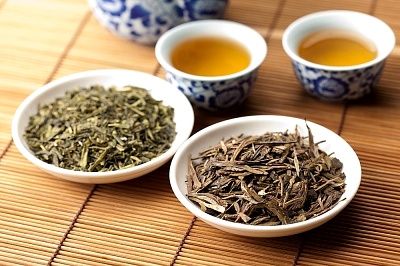Scientists say that herbal and green tea are dangerous to health
Last reviewed: 23.04.2024

All iLive content is medically reviewed or fact checked to ensure as much factual accuracy as possible.
We have strict sourcing guidelines and only link to reputable media sites, academic research institutions and, whenever possible, medically peer reviewed studies. Note that the numbers in parentheses ([1], [2], etc.) are clickable links to these studies.
If you feel that any of our content is inaccurate, out-of-date, or otherwise questionable, please select it and press Ctrl + Enter.
The healing power of herbal infusions and green tea is said for a long time. Not only representatives of alternative medicine, but respected experts from all over the world agreed that herbal tea is one of the most beneficial beverages for the human body. It is used to prevent colds, urinary system diseases, to strengthen immunity and simply as a replacement for today's popular coffee and black tea.

Experts recommend to think: is green tea really useful for every person? After all, tea, like any other product, may have contraindications that can cause unpleasant and even dangerous consequences. A group of scientists from eastern Germany conducted a small study aimed at studying various collections of herbal tea. The experiment showed that in the popular tea gatherings there is too much pyrrolizidine alkaloids, which can negatively affect the state of human health.
The substances contained in green and herbal tea are alkaloids, of plant origin, in the molecule of which are the remains of pyrrolizidine. At the moment, experts are not sure of the negative effect of alkaloids on the human body, since the research is not completed, only the warning came to the press.
Doctors believe that herbal drinks should not be carried away by people with diseases of the cardiovascular system, since the components of tea can disrupt the heart rhythm and lead to dangerous complications. People suffering from hypotension should also refrain from consuming green tea, which can lower blood pressure. Green tea can provoke upset stomach or severe pain in the intestines of those who have peptic ulcer.
At the end of the last century, European scientists conducted a study that showed that too much green tea can lead to problems in the genitourinary system. Scientists have proved that green tea can provoke stone formation in the kidneys.
Also, excessive consumption of tea (more than 3-4 cups daily) can lead to nervous system disorders. Early studies have shown that people who drink more than 4 cups of herbal or green tea daily are more likely to experience depression, bad mood and nervous breakdown. Also, a person who abuses green tea, has frequent dizziness, nausea, low blood pressure.
To exclude the use of green tea costs pregnant and lactating women. Caffeine, which is contained in tea, can cause sleep disorders in both the mother and the child, and polyphenols in the composition can trigger an allergic reaction. Specialists, of course, do not call all people to give up green and herbal tea, but, at any rate, warn that abuse can cause unpleasant consequences. Even if you do not have any contraindications, the amount of consumed beverage is best reduced to several cups a day.

 [
[